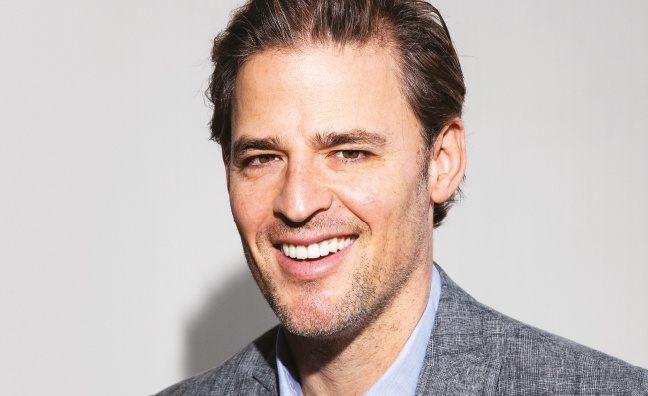Round Hill Music CEO Josh Gruss has shared his vision for the future of the publisher - and revealed why he considers it to be future-proofed against AI.
The company's portfolio of catalogues, which includes songs by artists such as Alice In Chains, Bush, Celine Dion, Carrie Underwood, The Supremes, Wilson Pickett and Whitesnake, was valued at $602.6 million at the end of 2022.
Gruss explained why the firm decided to focus its energies on music released pre-2010.
“The music that we invest in is going to be your evergreen catalogue; your durable, time-tested, consistently earning songs from the ’70s, ’80s ,’90s, early-2000s, some ’60s, some ’50s," he said. "If you look at the London portfolio, over half is rock music... because rock has a consistency and loyalty to it like no other genre. If you think about Metallica or Iron Maiden, or some of these bands that have been around 30 or 40 years, they’re still going to fill stadiums.
"Consistency and predictability are the top things we care about, so you have to have timeless music and some of these rock songs are extremely timeless. I hear [Whitesnake’s] Here I Go Again on the radio all the time. It’s always around, and those are the types of songs we want.”
No one wants to hear a fake Alice In Chains song. The fans would revolt
Josh Gruss
Asked about the impact of AI-generated music - both now and in the future - Gruss insisted its development did not worry him in the slightest.
“I’m not afraid of it one single bit," he said. "I think that, firstly, there’s going to be a lot of legal figuring out over the next year, and that will conclude that there are some major copyright issues with AI. Scraping recordings to feed an algorithm, that’s something that probably should be properly licensed first."
He continued: "Platforms like Spotify, Deezer... don’t want their platform flooded with junk. If you’re a Spotify user and you have to sift through a sea of artificially-created junk, it’s going to kill the user experience and so they’re going to police how much of this AI stuff ends up on DSPs.
"I also think that our repertoire is the last type of repertoire to get affected, because no one wants to hear a fake Alice In Chains song. An Alice In Chains fan would revolt if they went to see a concert and the guitar player was playing to a track. So maybe it affects the very disposable music of today, where everything’s just a loop and a beat with a voice over it. It feels like that’s easy to replicate and the kids who watch TikTok might check it out for a week, but then it’s gone. That doesn’t bother me, it doesn’t affect any of our music.”
With offices in New York, Los Angeles, Nashville and London, Round Hill is also home to a record label and label services division, a neighbouring rights strand and a music production library business. The firm continued on an upward trajectory for the first quarter of 2023, reporting its combined net publisher’s share and net label share was $10.1m - up 91% on the same three-month period last year.
While the majority of the growth was due to acquisitions last year, like-for-like revenues from the company’s initial investments rose by 20%. In addition, sync income grew to $2.1m. Gruss said the results "reconfirm our positive outlook for the year ahead".
"The revenue growth we have delivered, both actively and organically, reflects the quality and expertise of our in-house platform, composed of people who are passionate about our songs, as well as the strength of our prudent investment strategy which focuses on iconic music with enduring appeal," he said last month.
Round Hill either has to continue to grow and raise money or it’s going to get gobbled up by one of the other guys
Josh Gruss
Round Hill floated on the London Stock Exchange in November 2020, raising $282m (£212m) in its IPO, which preceded a $291m funding round and a further $46.1m (£33m) in share issuances. The move invited further comparisons with Hipgnosis.
“Now that we’re publicly traded in London, we get compared to Hipgnosis a lot," Gruss told Music Week. "A lot of our shareholders are also Hipgnosis shareholders - they wanted to not have all their eggs in one basket and invested in two players instead of just one.
"I’m doing everything I can to get investors to see the value. We’re hoping our results speak for themselves and answer a lot of the questions that investors have had about the music space and how we do things.
"We are trying to raise another fund, we want to see the London listing grow and we just want to get bigger. There becomes a point where you have to keep up with the Joneses. A lot of our competition has access to billions of dollars, and Round Hill either has to continue to grow and raise money or it’s going to get gobbled up by one of the other guys. It’s a game of dollars, scale and firepower, and you have to keep up with that.”
Subscribers can click to read the full Music Week Interview.












